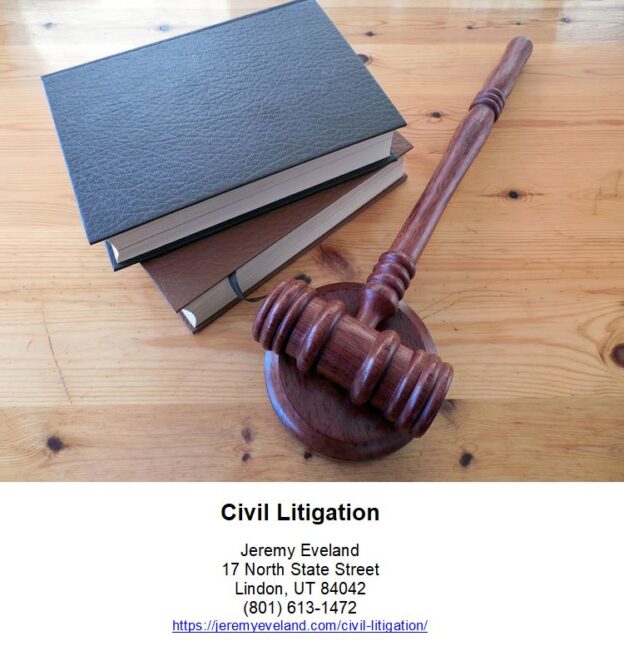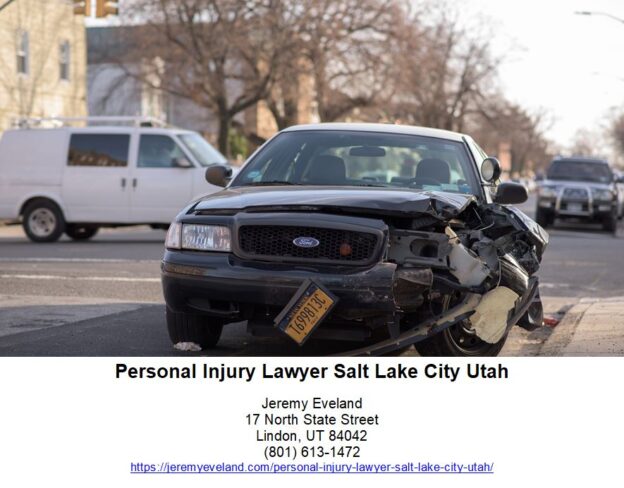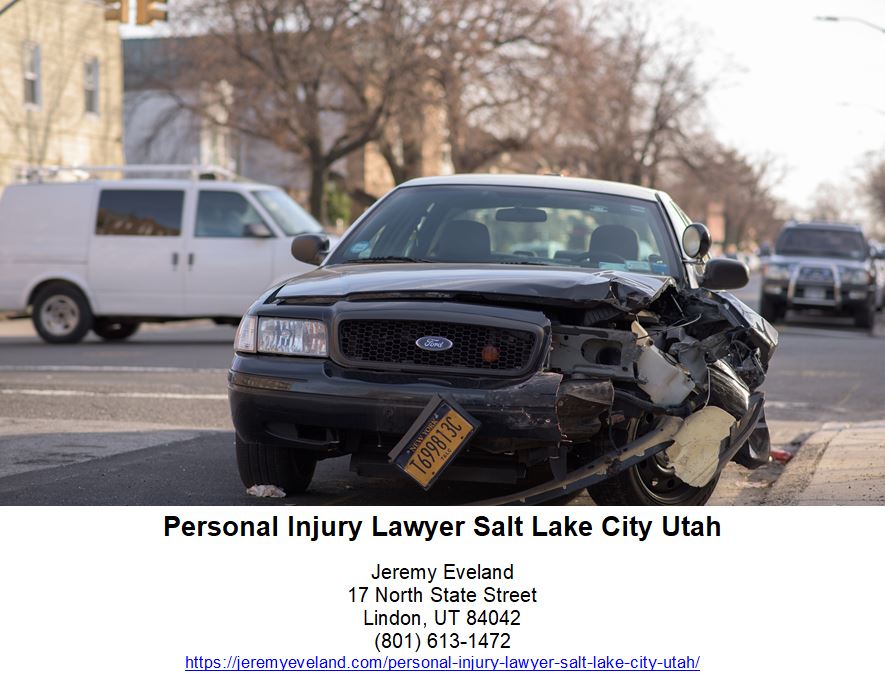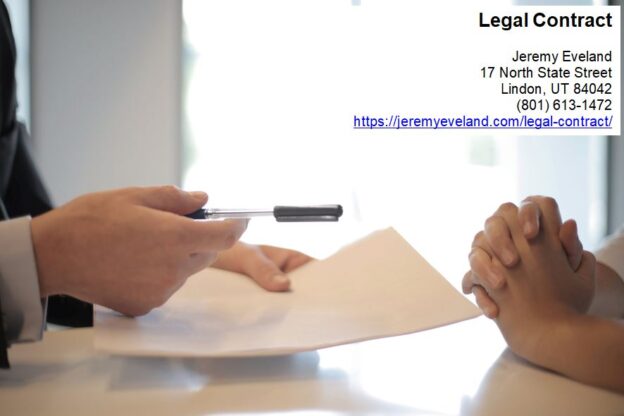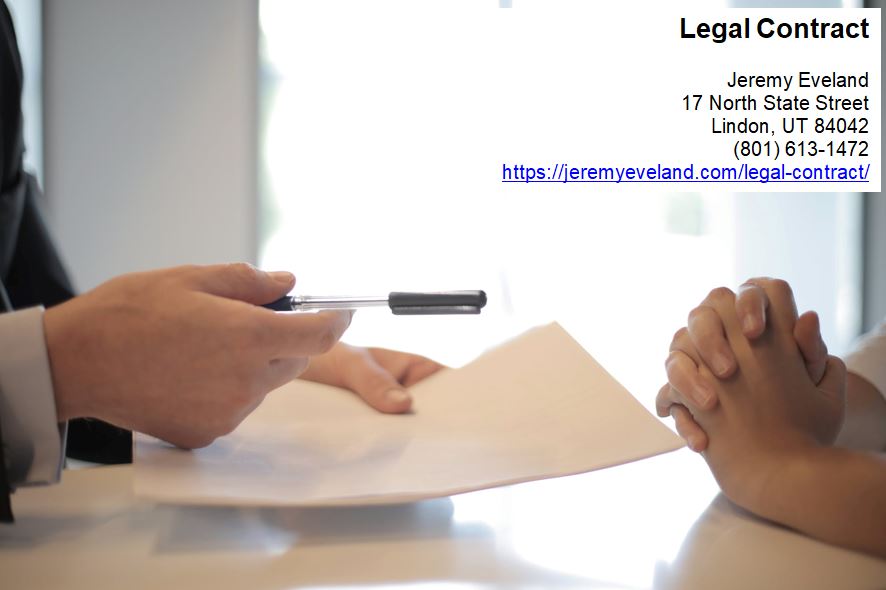-
Attorney at Law
- Introduction
- Pre-Action Protocol for Civil Money Claims in Civil Litigation
- High Stakes and High Assets in Civil Litigation in Utah
- Utah Rules of Civil Procedure Rule and Federal Rules of Civil Procedure
- Understanding the Impact of the New Practice Direction Update on Civil Litigation
- Exploring the Benefits of Alternative Dispute Resolution in Civil Litigation
- Why Businesses Need a Civil Litigation Attorney
- Q&A
“Civil Litigation: Your Path to Justice”
Introduction
Civil litigation is a legal process that resolves disputes between two or more parties. It is a process that is used to resolve disputes between individuals, businesses, and even government entities. Civil litigation is a process that is used to resolve disputes that arise from a variety of different areas, including contract disputes, personal injury, property damage, and more. Civil litigation is a process that is used to resolve disputes in a fair and equitable manner. It is a process that is used to ensure that all parties involved in the dispute are treated fairly and that the dispute is resolved in a timely manner. Civil litigation is a process that is used to ensure that justice is served and that all parties involved in the dispute are treated fairly.
Pre-Action Protocol for Civil Money Claims in Civil Litigation
High Stakes and High Assets in Civil Litigation in Utah
Civil litigation in Utah is a complex process that involves high stakes and high assets. It is important for individuals and businesses to understand the process and the potential risks and rewards associated with it.
Civil litigation is a legal process in which two or more parties seek to resolve a dispute through the court system. In Utah, civil litigation is governed by the Utah Rules of Civil Procedure. These rules provide guidance on how to initiate a lawsuit, how to respond to a lawsuit, and how to proceed through the court system.
The stakes in civil litigation can be high. Depending on the nature of the dispute, the parties may be seeking monetary damages, injunctive relief, or other forms of relief. In some cases, the stakes may be even higher, such as when a party is seeking to have a contract declared void or when a party is seeking to have a court order enforced.
The assets at stake in civil litigation can also be high. Depending on the nature of the dispute, the parties may be seeking to recover money, property, or other assets. In some cases, the assets at stake may be even higher, such as when a party is seeking to have a contract declared void or when a party is seeking to have a court order enforced.
It is important for individuals and businesses to understand the process and the potential risks and rewards associated with civil litigation in Utah. It is also important to understand the potential costs associated with civil litigation, including attorney’s fees, court costs, and other expenses.
For individuals and businesses considering civil litigation in Utah, it is important to consult with an experienced attorney who can provide advice and guidance on the process and the potential risks and rewards associated with it. An experienced attorney can also help to ensure that the parties are properly prepared for the litigation process and that their rights are protected throughout the process.
Utah Rules of Civil Procedure Rule and Federal Rules of Civil Procedure
The Rules of Civil Procedure govern the process of civil litigation in both state and federal courts. In the United States, each state has its own set of rules, while the federal courts follow the Federal Rules of Civil Procedure (FRCP). The Utah Rules of Civil Procedure (URCP) are the rules that govern civil litigation in the state of Utah.
The URCP are based on the FRCP, but they have some important differences. For example, the URCP require that all pleadings be verified, while the FRCP does not. The URCP also require that all motions be accompanied by a memorandum of points and authorities, while the FRCP does not. Additionally, the URCP have specific rules regarding the service of process, while the FRCP do not.
The URCP also have some unique provisions that are not found in the FRCP. For example, the URCP allow for the use of alternative dispute resolution (ADR) in certain cases. Additionally, the URCP provide for the use of special masters to hear certain types of cases.
Overall, the URCP and the FRCP are similar in many ways, but they also have some important differences. It is important for attorneys to be familiar with both sets of rules in order to effectively represent their clients in civil litigation.
Understanding the Impact of the New Practice Direction Update on Civil Litigation
The Utah Rules of Civil Procedure (URCP) are the set of rules that govern civil litigation in the state of Utah. These rules are designed to promote the just, speedy, and inexpensive determination of all civil actions. The URCP is divided into four sections: General Provisions, Pretrial Procedure, Trial Procedure, and Appellate Procedure. The URCP is an important tool in the administration of justice in Utah, as it provides a framework for the efficient and fair resolution of civil disputes.
The General Provisions section of the URCP sets forth the purpose of the rules, as well as the definitions and construction of the rules. This section also outlines the authority and responsibilities of the court and the parties in civil proceedings.
The Pretrial Procedure section of the URCP outlines the process of civil litigation before trial. This section covers topics such as filing the complaint, service of process, case management, discovery, summary judgment, and motion practice.
The Trial Procedure section of the URCP outlines the process for conducting a civil trial in Utah. This section covers topics such as jury selection, opening statements, and the presentation of evidence.
The Appellate Procedure section of the URCP outlines the process for appealing a civil judgment in Utah. This section covers topics such as filing the notice of appeal, record on appeal, stay of execution, and the preparation of the appellate brief.
The Utah Rules of Civil Procedure are the set of rules that govern civil litigation in the state of Utah. These rules provide a framework for the efficient and fair resolution of civil disputes, and are an important tool in the administration of justice in Utah. The URCP is divided into four sections: General Provisions, Pretrial Procedure, Trial Procedure, and Appellate Procedure. Each section outlines the process for conducting civil litigation in Utah, from filing the complaint through to the appeal of a civil judgment. By providing a framework for the efficient and fair resolution of civil disputes, the URCP helps ensure that justice is served in Utah.
Exploring the Benefits of Alternative Dispute Resolution in Civil Litigation
Alternative Dispute Resolution (ADR) is an increasingly popular option for resolving civil disputes outside of the traditional court system. ADR offers a variety of benefits to both parties involved in a dispute, including cost savings, speedier resolution, and greater privacy. This article will explore the advantages of ADR in civil litigation.
Cost Savings
One of the primary benefits of ADR is the cost savings it offers. Litigation can be expensive, and the costs can quickly add up. ADR, on the other hand, is typically much less expensive than traditional litigation. This is because ADR proceedings are often conducted outside of the court system, which eliminates the need for costly court fees and other associated costs. Additionally, ADR proceedings are often shorter than traditional litigation, which further reduces the overall cost.
Speedier Resolution
Another benefit of ADR is that it often results in a speedier resolution than traditional litigation. This is because ADR proceedings are typically conducted outside of the court system, which eliminates the need for lengthy court proceedings. Additionally, ADR proceedings are often conducted by a neutral third party, which can help to expedite the process.
Greater Privacy
Finally, ADR offers greater privacy than traditional litigation. This is because ADR proceedings are typically conducted outside of the court system, which eliminates the need for public hearings. Additionally, ADR proceedings are often conducted in private, which allows both parties to maintain their privacy.
In conclusion, ADR offers a variety of benefits to both parties involved in a dispute, including cost savings, speedier resolution, and greater privacy. For these reasons, ADR is an increasingly popular option for resolving civil disputes outside of the traditional court system.
Why Businesses Need a Civil Litigation Attorney
Businesses of all sizes face the risk of civil litigation. A civil litigation attorney can help protect a business from potential legal issues and provide guidance on how to handle disputes.
Civil litigation attorneys specialize in resolving disputes between two or more parties. They can help businesses navigate the legal system and protect their interests in a variety of ways.
First, a civil litigation attorney can help a business understand its legal rights and obligations. They can provide advice on how to handle a dispute, including how to respond to a lawsuit or other legal action. They can also help a business understand the potential risks and rewards of a particular course of action.
Second, a civil litigation attorney can help a business prepare for a lawsuit. This includes drafting legal documents, such as complaints and motions, and representing the business in court. A civil litigation attorney can also help a business negotiate a settlement or other resolution to a dispute.
Third, a civil litigation attorney can help a business protect its assets. This includes helping the business understand the potential financial implications of a lawsuit and how to protect its assets from creditors.
Finally, a civil litigation attorney can help a business understand the legal implications of its contracts and other agreements. They can review contracts and other documents to ensure that they are legally binding and enforceable.
In short, a civil litigation attorney can help a business protect its interests and navigate the legal system. They can provide advice on how to handle disputes, prepare for a lawsuit, protect assets, and understand the legal implications of contracts and other agreements. By working with a civil litigation attorney, businesses can reduce their risk of legal issues and ensure that their interests are protected.
Q&A
Q: What is civil litigation?
A: Civil litigation is a legal dispute between two or more parties that seek money damages or specific performance rather than criminal sanctions. It involves a court proceeding in which one party sues another to enforce a right, seek damages, or protect property.
Q: What are the steps in civil litigation?
A: The steps in civil litigation typically include: filing a complaint, serving the complaint, filing an answer, discovery, pre-trial motions, trial, and post-trial motions.
Q: What is discovery in civil litigation?
A: Discovery is the process of gathering evidence and information from the opposing party in a civil lawsuit. This includes interrogatories, requests for production of documents, depositions, and requests for admissions.
Q: What is the difference between civil and criminal litigation?
A: The main difference between civil and criminal litigation is that civil litigation is a dispute between two or more parties seeking money damages or specific performance, while criminal litigation is a dispute between the state and an individual accused of a crime.
Q: What is the statute of limitations for civil litigation?
A: The statute of limitations for civil litigation varies by state and by the type of claim. Generally, the statute of limitations is the time period within which a lawsuit must be filed or a claim must be made.
Q: What is the role of a lawyer in civil litigation?
A: A lawyer plays an important role in civil litigation. They provide legal advice, represent their clients in court, draft legal documents, and negotiate settlements. They also help their clients understand their rights and obligations under the law.
Civil Litigation Consultation
When you need help with Civil Litigation call Jeremy D. Eveland, MBA, JD (801) 613-1472 for a consultation.
Jeremy Eveland
17 North State Street
Lindon UT 84042
(801) 613-1472
Related Posts
Concrete Pumping Business Lawyer
Do I Need A Board of Directors?
Estate Planning Lawyer West Valley City Utah
